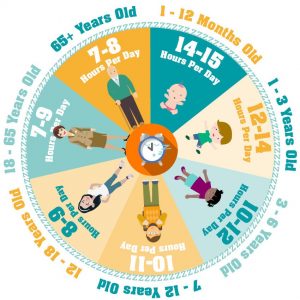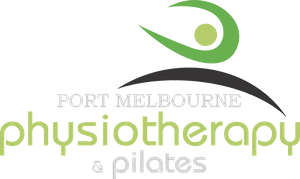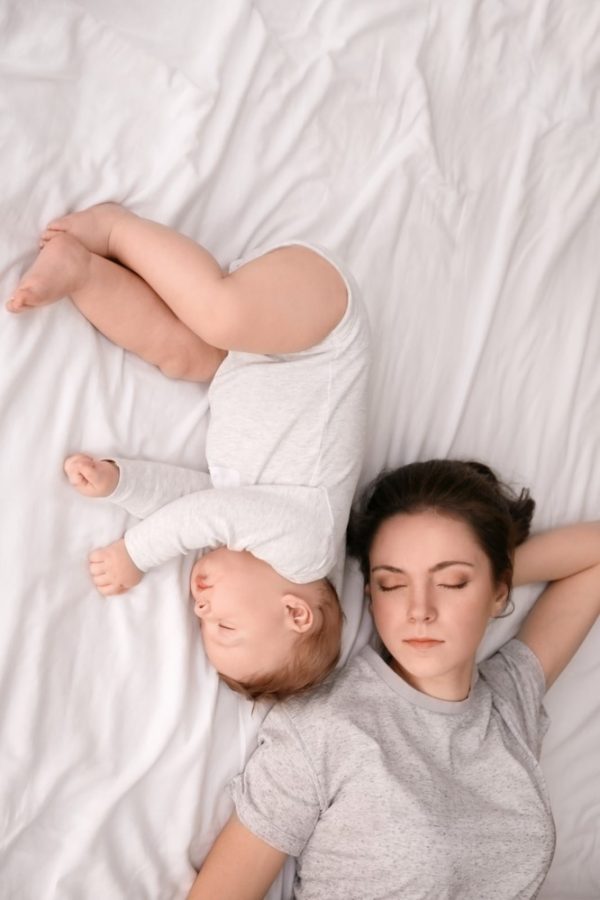Sleep: Part 1
We all know how it feels to get a terrible night’s sleep and the aftermath of how it is to function the following day. It can then potentially impact on how we sleep the following night, for good or for worse. Around 25% of adults report being dissatisfied with their sleep, 10-15% have insomnia symptoms related to daytime activities and 6-10% have insomnia (3). Whether it is at work, academia, when exercising or other daily activities, sleep can really compromise how we perform and feel. It can also extend to affect our families (3). So, does this overtime, have short-term and long-term effects on our health? And if so, how can we best optimise our sleep?
A great researcher Allen Rechtschaffen stated that “if sleep does not serve an absolute vital function, then it is the biggest mistake the evolutionary process ever made.”(6).
Why & how do we sleep?
Why we sleep is still not fully understood. The consequences of no sleep has aided researchers to theorise why. It was previously believed that sleep was a time when our bodies would shut down. However, now it is considered as an active state of mind. Interestingly it has been shown that our minds sometimes use more oxygen and glucose while asleep than awake. The frontal cortex (the part in the brain involved with planning complex cognitive behaviour, personality expression, decision-making, and altering social behaviour) has also been shown to be used more during sleep (2).
Circadian Rhythm
Circadian rhythm is an internal body clock system that regulates 24hr pattern of sleep and wake. It is slightly longer than 24 hours, but is reset each morning when first exposed to light. This stops melatonin secretion into the body, with the hormone adenosine replaces it during the day. Melatonin controls the urge of sleep. Levels are highest during night and start to climb during the afternoon to prepare the body for rest, as it begins to grow darker (2).
Sleep Theories
1. Restorative theory:
- Sleep is a behavioural state to save energy and for the body to metabolise
- Highly valued REM sleep for memory retention and consolidation
- A way of filtering and storing memories
- Replenish brain cells
2. Developmental theory:
- Highly values the development of the brain
- The brain stimulates sensory, motor & visual areas of brain to increase function and enhance connections
3. Preservation theory:
- An essential aspect of living
- Prolonged deprivation can result in stress-related death
- Evolutionary way to avoid danger, amplified by natural selection
Stages of sleep
During sleep the mind actively cycles through 5 different stages of consciousness. In a typical night we usually cycle through repeatedly the altering stages of sleep 4-6 times. At the start of the night we spend more time in the lighter stages, with more dreaming at the later end of the cycle. Each stage has a different focus and overall the body is actively working to refuel, repair and organize the mind and the brain (2).
Stages 1-4 NREM (non-rapid eye movement)
- Stage 1-2 light stages of sleeping
- The deeper the stage, to harder to be awakened and the lower the consciousness
Stage 5 REM (rapid eye movement)
- Dreaming stage
- Paralysis
How much sleep do we need?
According to the National Sleep foundation:

Some people require more rest than others and the above is the average for each age group. Unfortunately, some can cope much more with a poor sleep than others, so know what you can work with.
Consequences of not enough sleep:
Physically:
- Decreased physical performance power, speed, strength, accuracy, load etc
- Productivity
- Neurons start to malfunction, electrical and chemical activity altering normal brain functioning
- Lower immune system
Mentally:
- Sluggish, foggy, heavy, lack of concentration, low mood, motivation, irritability, decreased total performance output for study or work, memory, quality of life
Lifestyle:
- less likely to exercise, eat well, social interactions, weight gain
- Life threatening problems associated with human errors (e.g motor vehicle accidents)
Disorders:
- Sleep deprivation problems among other low mental and physical states can be an early aspect of chronic pain development and may contribute to the process (1).
- Sleep related disorders also co-occur with medical or psychiatric disorders such as depression, anxiety and substance abuse (3).
- It may ↑ risk for cognitive impairment and dementia (3).
Part 2 of Lucy’s post coming up soon!!
If you’re suffering with poor sleep check out our blog post on Magnesium Oil spray to see if this may benefit you.
~Lucy Bowden
References:
- Bergman, S. (2007). Management of musculoskeletal pain. Best Practice & Research Clinical Rheumatology, 21(1), 153-166. doi: 10.1016/j.berh.2006.10.001
- Ezenwanne E. (2011). Current concepts in the neurophysiologic basis of sleep; a review. Annals of medical and health sciences research, 1(2), 173–179.
- Neuendorf, R., Wahbeh, H., Chamine, I., Yu, J., Hutchison, K., & Oken, B. (2015). The Effects of Mind-Body Interventions on Sleep Quality: A Systematic Review. Retrieved from http://dx.doi.org/10.1155/2015/902708
- Pain and Sleep | National Sleep Foundation. (2019). Retrieved from https://www.sleepfoundation.org/articles/pain-and-sleep
- (2019). Retrieved from https://painhealth.csse.uwa.edu.au/pain-module/sleep-and-pain/
- S Assefa, S., Diaz-Abad, M., M Wickwire, E., & M Scharf, S. (2015). The Functions of Sleep. AIMS Neuroscience, 2(3), 155-171. doi: 10.3934/neuroscience.2015.3.155
- Sleep Health Foundation – Australia’s Leading Advocate for Healthy Sleep. (2019). Retrieved from https://www.sleephealthfoundation.org.au

